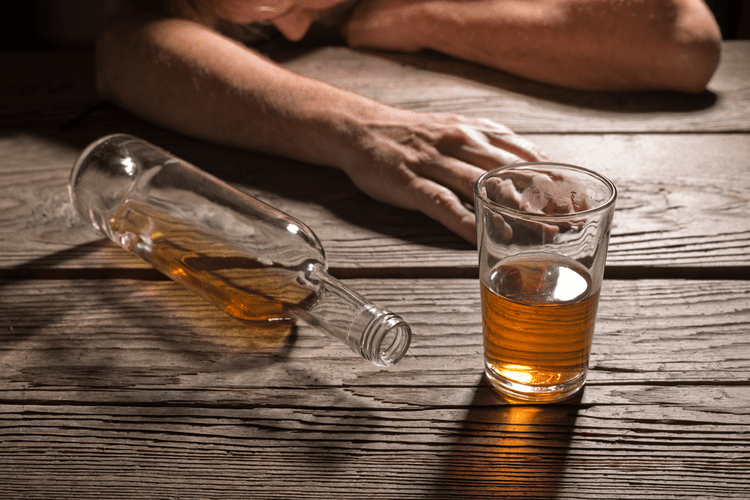How Long Alcohol Stays Your System
Content
It’s also important to know how much alcohol is in your drink, because that will determine how long it takes to metabolize your drink. For example, some beers have a higher alcohol content, which affects how much alcohol you’re consuming from one drink. Having some food in your stomach may slow alcohol absorption somewhat, although it won’t prevent alcohol poisoning if, for example, you’re binge drinking.
The following table shows the length of time it takes for your body to eliminate alcohol at varying BAC levels. Verywell Mind articles are reviewed by board-certified flushing alcohol out of system physicians and mental healthcare professionals. Medical Reviewers confirm the content is thorough and accurate, reflecting the latest evidence-based research.
How The Body Processes Alcohol
Women also tend to have a higher percentage of body fat and a lower percentage of water, which influences intoxication and the length of time it takes to get alcohol out of their system. Women who drink their normal amount of alcohol prior to menstruation will experience higher BACs than they otherwise would. Eating high protein foods, such as tofu or cheese, before or while drinking can slow the absorption of alcohol. Ninety percent of alcohol consumed passes through the liver. The organ breaks down the alcohol into acetaldehyde, a chemical the body recognizes as toxic.
People who begin with blood alcohol levels of 0.20 will take between 12 and 14 hours to process the alcohol in your system. Drinking more means it takes longer for alcohol to process through your body. The approximate blood alcohol content of an average person of 150-pounds who consumes a standard drink (such as a 12-ounce beer or glass of wine) will be between 0.02 and 0.03. A blood alcohol level of 0.45% is lethal for approximately 50% of the population. At around 0.15% BAC, most people begin vomiting due to excess alcohol in the blood and the body’s inability to metabolize the alcohol fast enough. Once a BAC reaches about 0.35%, most individuals become unconscious.
Alcohol is a depressant that has a short life span in the body. Once alcohol has entered your bloodstream, your body will begin to metabolize it at a rate of 20 milligrams per deciliter (mg/dL) per hour. That means that if your blood alcohol level were 40 mg/dL, it would take about two hours to metabolize the alcohol. A hangover is a collection of symptoms, which include vomiting, exhaustion, headaches, and unnecessary trembling.
Best Ways To Avoid Intoxication
You may be even more dehydrated if your hangover causes nausea, excessive sweating, or vomiting. That’s why it’s of great importance to drink lots of fluids. Tough luck for all of you who enjoy a little fizz in your glass.
- Minor detox symptoms may show up in just 2 to 6 hours after your last drink, she says.
- Alcohol also stays in different parts of the body for different amounts of time.
- An alcoholic who stops drinking and begins to detox could experience withdrawal symptoms six hours after the last drink, and withdrawal can last days, weeks, or even months in some cases.
- This means that we are providing you with the best possible care and are compliant with the health and safety standards outlined by the Joint Commission.
The body generally processes approximately one standard drink per hour. If you have Sober living houses 5 standard drinks, it will take 5 hours for your body to process the alcohol.
Alcohol And Your Body
All of these factors mean that alcohol is processed by the body at a slower rate. How long alcohol stays in your system depends on a number of factors. A big concern that many people have after a long night of drinking is how long alcohol will remain in their system. On average, it takes about one hour to metabolize one standard drink. In terms of determining exactly how long alcohol is detectable in the body depends on many factors, including which kind of drug test is being used. Most heavy drinkers or those who engage in binge drinking, such as those with alcohol use disorder , tend to process alcohol faster than moderate, occasional, and first-time drinkers.

To prevent choking from vomit, turn the person on their side. It can also temporarily be detected in saliva, sweat, and blood. Detoxing won’t necessarily remove all the toxins from your body right away, but it can help the alcohol flush out more easily. Some popular ways to fight a hangover like drinking coffee and taking a shower, for example, may make you feel better in the moment but do not have any effect on your BAC. Eating is perhaps the most important way to flush alcohol out of your system.
How Long Does It Take For Alcohol To Leave Your System?
Occasionally, the blood pressure goes up, the heart pumps faster than normal, and the sweat glands overflow. Several individuals become more sensitive towards light and sound stimuli, while others experience the feeling of collapsing. Getting drunk wreaks havoc in your brain activity whilst sleeping; a hangover could cause restless nights or even no sleep at all.
Ranking the Best THC Detox Methods and Products That Work – Sequim Gazette
Ranking the Best THC Detox Methods and Products That Work.
Posted: Wed, 16 Mar 2022 08:30:00 GMT [source]
They’re best for people who have responsibilities at work, home, or school and are highly motivated to achieve sobriety. If this happens too often, damage to the body’s brain and tissues can develop. Jeffrey Juergens earned his Bachelor’s and Juris Doctor from the University of Florida. Jeffrey’s desire to help others led him to focus on economic and social development and policy making. After graduation, he decided to pursue his passion of writing and editing. Jeffrey’s mission is to educate and inform the public on addiction issues and help those in need of treatment find the best option for them.
How Your Body Processes Alcohol
Alcohol can be detected in a urine test between 12 and 48 hours after your last drink through an ethyl glucuronide drug test. At Compass Detox, our team of medical professionals can guide you and your loved ones through how alcohol affects the body. By educating yourself about this substance, you stand a significantly better chance of avoiding alcohol abuse and knowing when to seek treatment.

The belief that breastmilk can be cleared of alcohol with the “pump and dump” method is false. As long as there is alcohol in the body, it will be present in breastmilk. Each woman is different and will process alcohol at varying rates of times. There are different types of tests for different parts of your body, and each one has multiple uses. For example, if you’re being tested in a medical setting for intoxication, doctors are more likely to take a blood sample.
So, it takes about 25 hours for your body to clear all the alcohol. Not taking medications, including over-the-counter drugs, while consuming alcohol. Alcohol may make medications stronger or interact with them, making them ineffective or dangerous. Taking slow sips and keeping busy, such as by chatting with friends, can help reduce the number of alcoholic beverages that are drunk. Drinking can be a healthy social experience, but consuming large amounts of alcohol, even one time, can lead to serious health complications. Oftentimes, a person with alcohol poisoning passes out before they realize what’s happened. If you suspect alcohol poisoning in a friend or loved one, call your local emergency services right away.
In general, the liver can process one ounce of liquor in one hour. If you consume more than this, your system becomes saturated, and the additional alcohol will accumulate in the blood and body tissues until it can be metabolized. This is why pounding shots or playing drinking games can result in high blood alcohol concentrations that last for several hours. As long as alcohol is being broken down in the body, it can be detected. Tests for the detection of alcohol or ethanol can also identify their derivatives, in urine, breath, saliva, sweat, and blood, between 2 and 80 hours after initial consumption. Urine testing can be performed accurately for up to 24 hours after the first alcoholic beverage is consumed.

The only way to deal with alcohol poisoning is by getting emergency medical attention. You’re legally drunk once your BAC hits .08 percent or higher — the point at which it’s considered unsafe to drive.
How Long Does It Take To Get A Drink Out Of Your System?
Alcohol stays in the urine for 12 to 72 hours, depending on how recently and how much you drank. All Addiction Group content is medically reviewed or fact checked to ensure as much factual accuracy as possible. Medications can help you detox, reduce cravings, and normalize bodily functions. Someone who is drinking on an empty stomach could have a BAC three times higher than someone who has eaten before drinking. Other factors affect the intoxication level that will cause BAC to rise more quickly and fall more slowly. Recovery from alcohol and drug addiction is possible, for you or a loved one. They help the liver, plus increase how much oxygen you have in your blood, as that gets the toxins out of your body even faster.
Keep in mind that eating before drinking affects how quickly you’ll get drunk and whether you will feel sick after drinking. However, if you continue to consume alcohol, the food you ate beforehand eventually becomes a moot point. Having food in the stomach can influence the body’s absorption of alcohol. Food slows the emptying of the stomach into the small intestine, where alcohol is very rapidly absorbed. If you suspect that you or someone you love has a drinking problem, do not wait another minute. Contact a treatment provider now to find a treatment center.
For some examples of how long it will take for your body to process various amounts of alcohol consult the table below. The human body is very effective at processing alcohol, provided that the alcohol is not consumed so quickly that alcohol poisoning occurs. Between 90% and 98% of all alcohol that enters the body is metabolized and absorbed. The remaining alcohol is excreted through sweat, urine, vomit, and feces. Heavy drinking can eliminate vitamins and minerals from the body, which can lead to a hangover.
